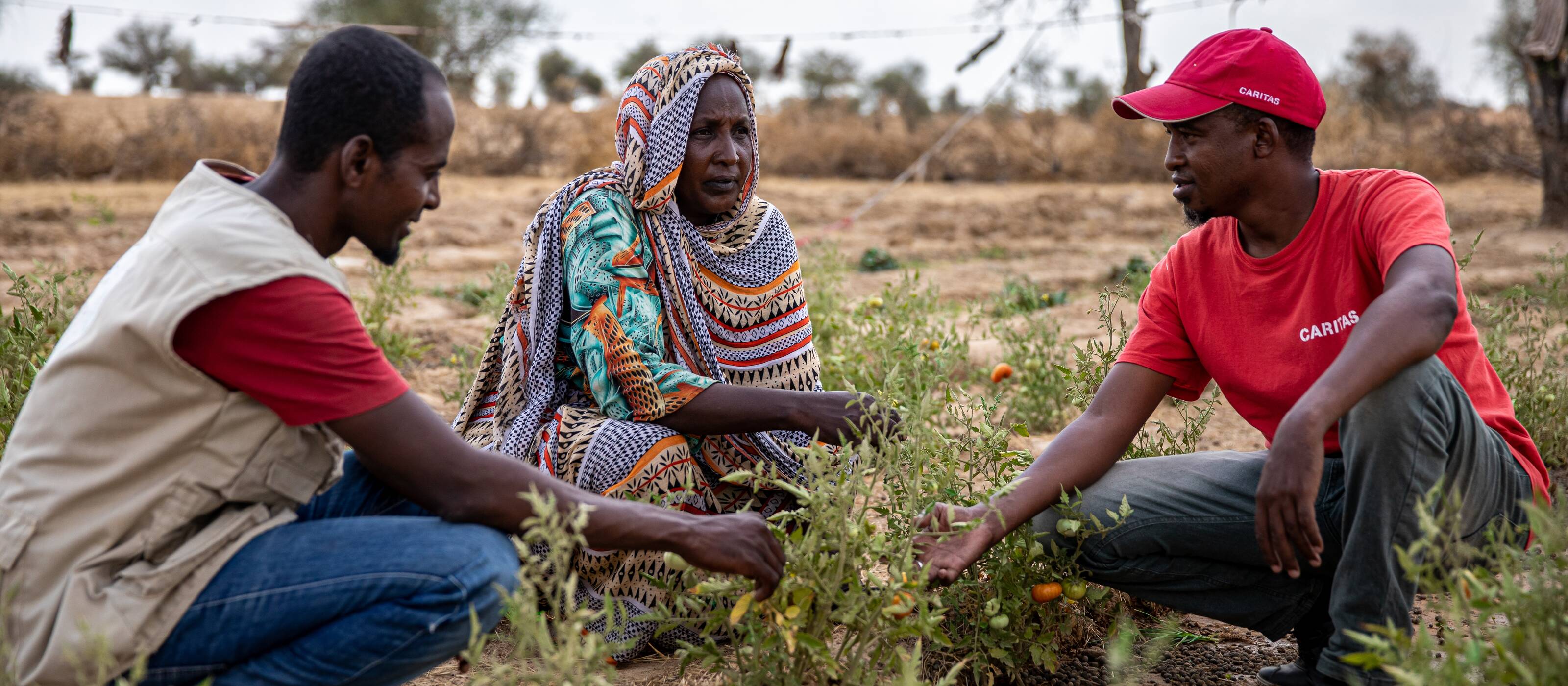

Towards localisation
The kind of development cooperation and humanitarian aid that is necessary and effective is best known by those directly affected and organisations on the spot. It therefore makes sense for aid to be as on-the-spot as possible. In this article, we show what is meant by localisation and how Caritas Switzerland is working towards this goal.
With the aim of reforming the overburdened humanitarian aid system, donors and humanitarian organisations at the 2016 UN Summit in Istanbul committed themselves in their final declaration to one of the most ambitious initiatives, the so-called «Grand Bargain». One of the foremost goals of this agreement is on-the-spot provision of humanitarian aid.
This goal is summarised under the term «localisation». It was decided that in future, at least 25 percent of humanitarian funds should flow directly to national and local organisations. Moreover, it concerns more than just money. It is about a fundamental rethinking: decision-making powers, responsibility and resources should be increasingly transferred to local partners. This includes strengthening local capacities, whereby a critical question must be asked: Strengthen capacities for what and by whom? The focus here must be on the goal of locally led, effective aid. With its aim of promoting local civil society and participation, this has been a focus of longer-term development cooperation for some time.
Since that 2016 declaration, much has been debated and written about the localisation agenda. Now is the time for concrete measures to result. This is demanded by numerous inclusive initiatives such as the «Charter4Change» or «Shifting the Power». With the Covid 19 pandemic and Black Lives Matter movement, the concern for localisation has gained additional urgency. In addition, new impulses are arising from the debate on the decolonisation of international cooperation. Outdated colonial patterns of thought and action, as well as unequal power relations in humanitarian aid and development cooperation are being criticised.
It is undisputed that there is a need for action to change the system towards locally led humanitarian aid and development cooperation. This also requires an honest self-reflection concerning the role of international organisations. A redefinition of partnership will play an important role in this.
How Caritas is implementing the localisation agenda
Caritas Internationalis, the umbrella organisation of the 164 Caritas organisations worldwide, already published a position paper with concrete recommendations for action for the UN Summit in 2016, and committed itself to localisation with its own guidelines in 2018. Through its organisational structure with national Caritas associations, locally led international cooperation is deeply rooted in Caritas' DNA.
«Localisation has been a principle in our international cooperation and an integral part of our work for decades, and we attach great importance to it,» says Franziska Koller, Head of International Cooperation at Caritas Switzerland. In the vast majority of its programmes, Caritas Switzerland works with national and local partner organisations within and outside the Caritas network. This is crucial for locally anchored projects with a sustainable impact.
How does this look like in concrete terms? In order to analyse the strengths and development potential of both Caritas Switzerland and the respective local partner organisation, a comprehensive partner risk analysis is carried out. Based on this, a plan for capacity strengthening and a successful partnership is developed, with which Caritas Switzerland and its partners assess each other and then jointly define measures. This creates an important basis of trust and transparency and thus of cooperation on equal footing.
Furthermore, the Caritas Switzerland offices in the respective project countries employ mainly local staff and expertise. In its communication and fundraising work, Caritas Switzerland complies to the joint manifesto for responsible communication of international cooperation launched by Alliance Sud. For a fundamental rethink and structural changes, Caritas Switzerland, together with its partners, also advocates for just political framework conditions in development and climate policy.
Further information
Header image: © Simon Huber